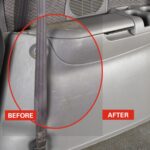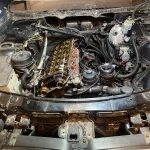Starting an auto repair shop involves many critical decisions, and one of the most fundamental is choosing the right business structure. Many aspiring shop owners ask, “How should I set up my shop?” This is a crucial question because the business structure impacts legal protection, taxation, and overall operations. It’s essential for anyone starting any type of business, especially in the auto repair industry, to consult with professionals who understand both general business practices and the specifics of this sector. Without expert guidance, shops can face significant legal vulnerabilities down the road.
The legal framework for setting up and safeguarding a business is intricate. Structuring your auto repair shop as a corporation or a Limited Liability Company (LLC) is vital for personal asset protection. Without incorporation or LLC status, personal assets like your home are at risk in case of lawsuits against the business.
For most auto repair shop owners, establishing an LLC offers a robust starting point. This structure, formed at the state level, provides cost-effective and relatively simple legal protection.
In terms of taxation within an LLC, if you are the sole owner, you’ll be taxed as a sole proprietor. If the shop has multiple owners, it will be taxed as a partnership by default. Both sole proprietorships and partnerships within an LLC offer sound initial structures for new auto repair businesses.
As your auto repair shop grows and revenues increase substantially, transitioning to an S Corporation (S Corp) might become beneficial. An S Corp maintains the legal protection of an LLC while offering increased financial flexibility, particularly in terms of tax management. The operational structure of your business remains the same as an LLC, but electing to be taxed as an S Corp changes how the state and IRS handle your taxes. While sole proprietors or partnerships in an LLC typically pay a 15% self-employment tax, an S Corp structure allows the owner to be compensated with a salary, avoiding self-employment taxes on profits beyond that salary. This can lead to significant tax savings, generally becoming advantageous when a shop generates at least $60,000 in annual profit.
Furthermore, if you own the property where your auto repair shop is located, consider holding the land in a separate LLC and then renting it back to your shop business. This strategy can further reduce FICA and Medicare taxes and provides an additional layer of legal separation between the business operations and the real estate assets. By keeping the property in a separate entity, it is shielded from liability claims against the operating auto repair business.
If you are unsure about your current business setup or need guidance on establishing a new auto repair shop, seeking professional advice is highly recommended. You can reach out for expert consultation to ensure your business is structured for success and protection.


